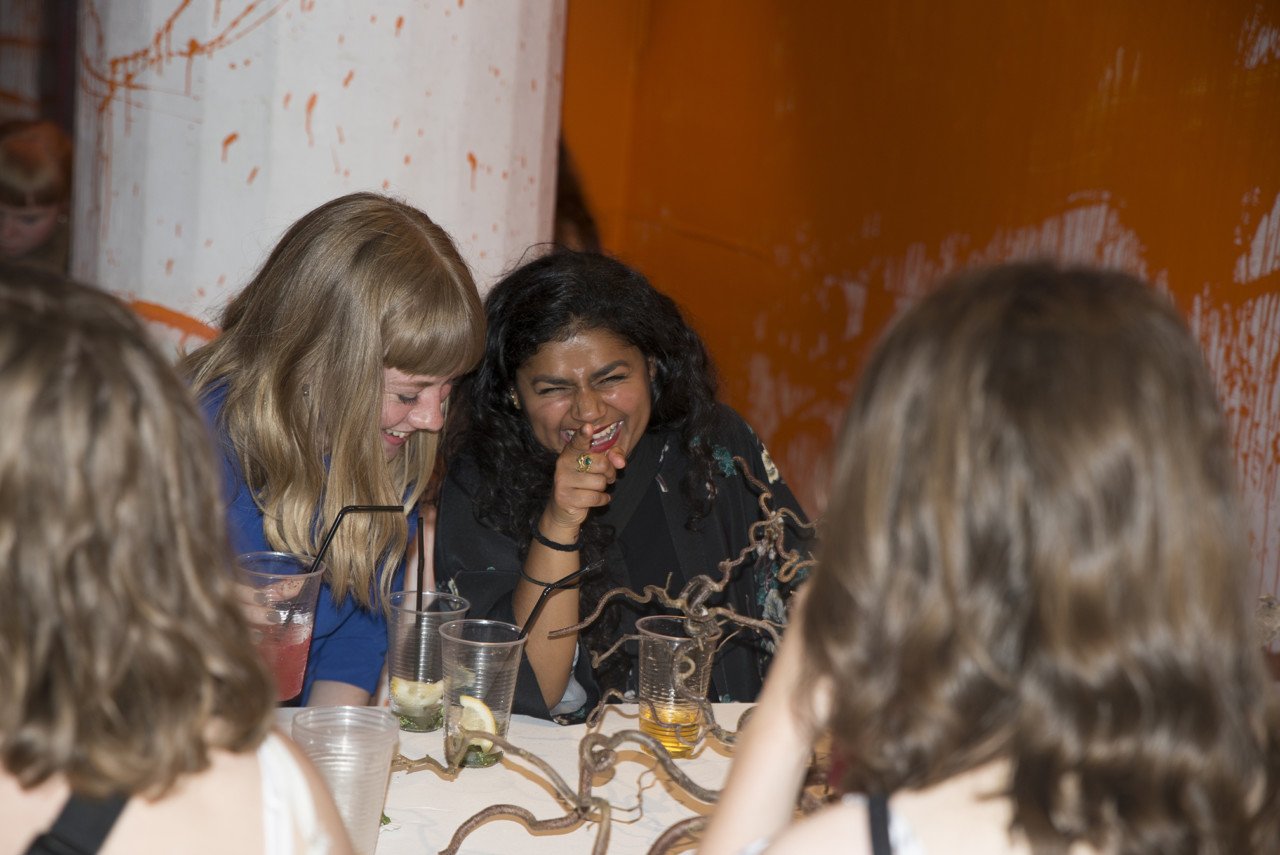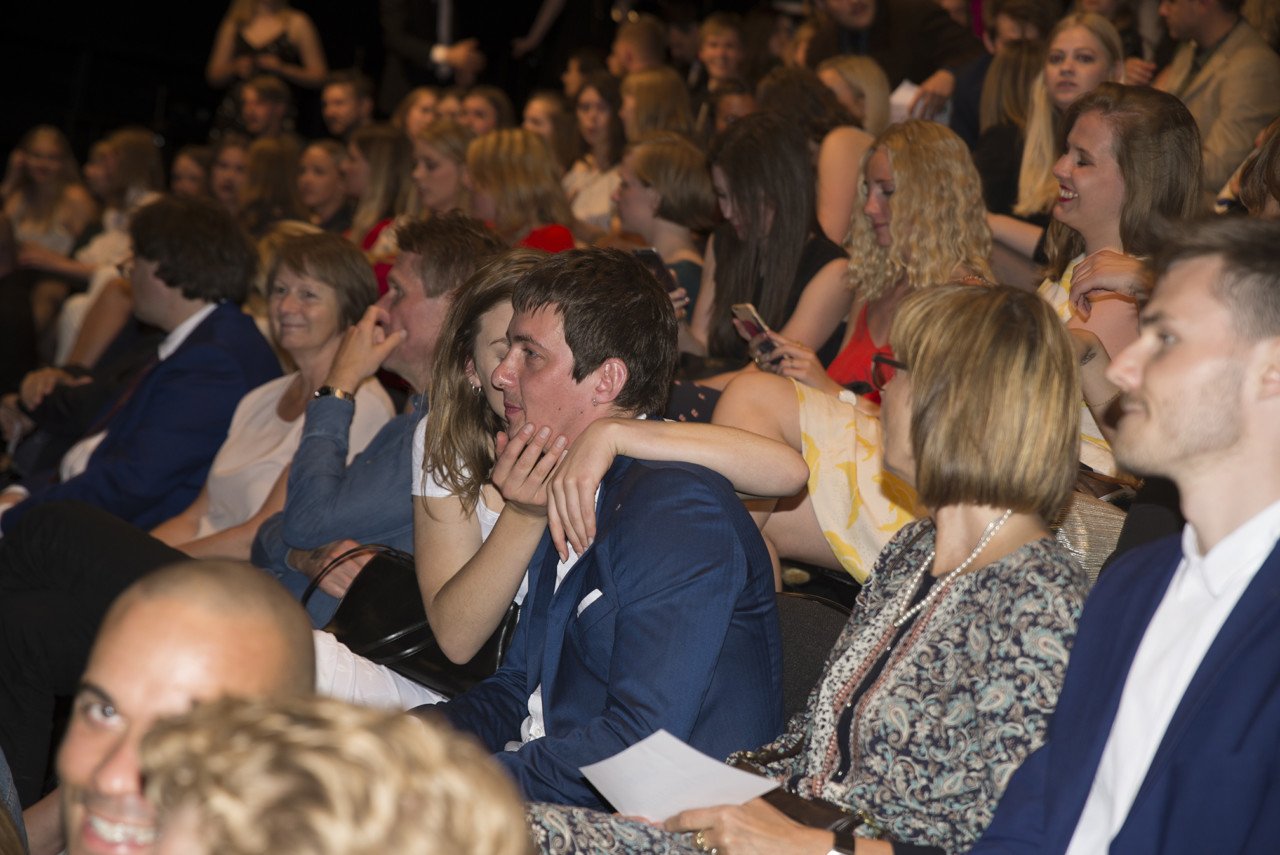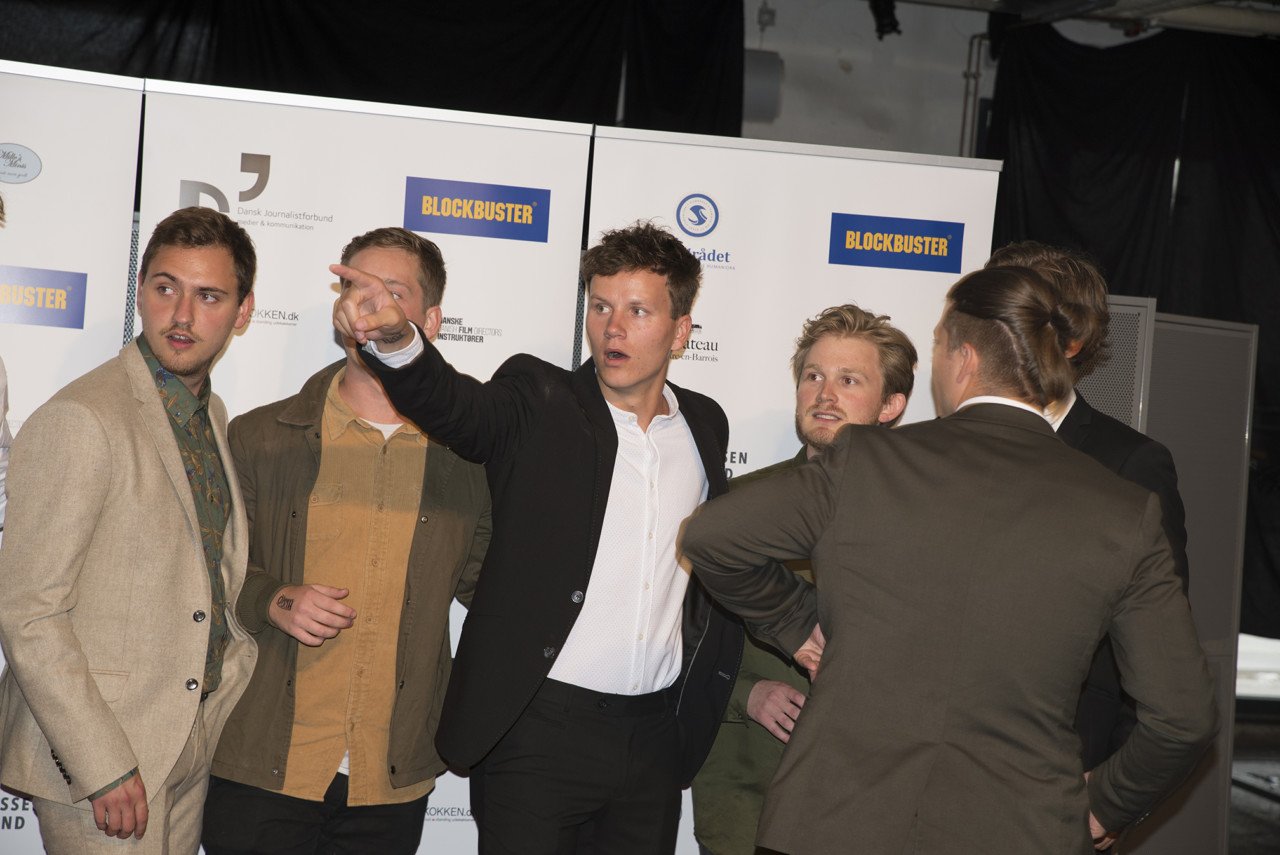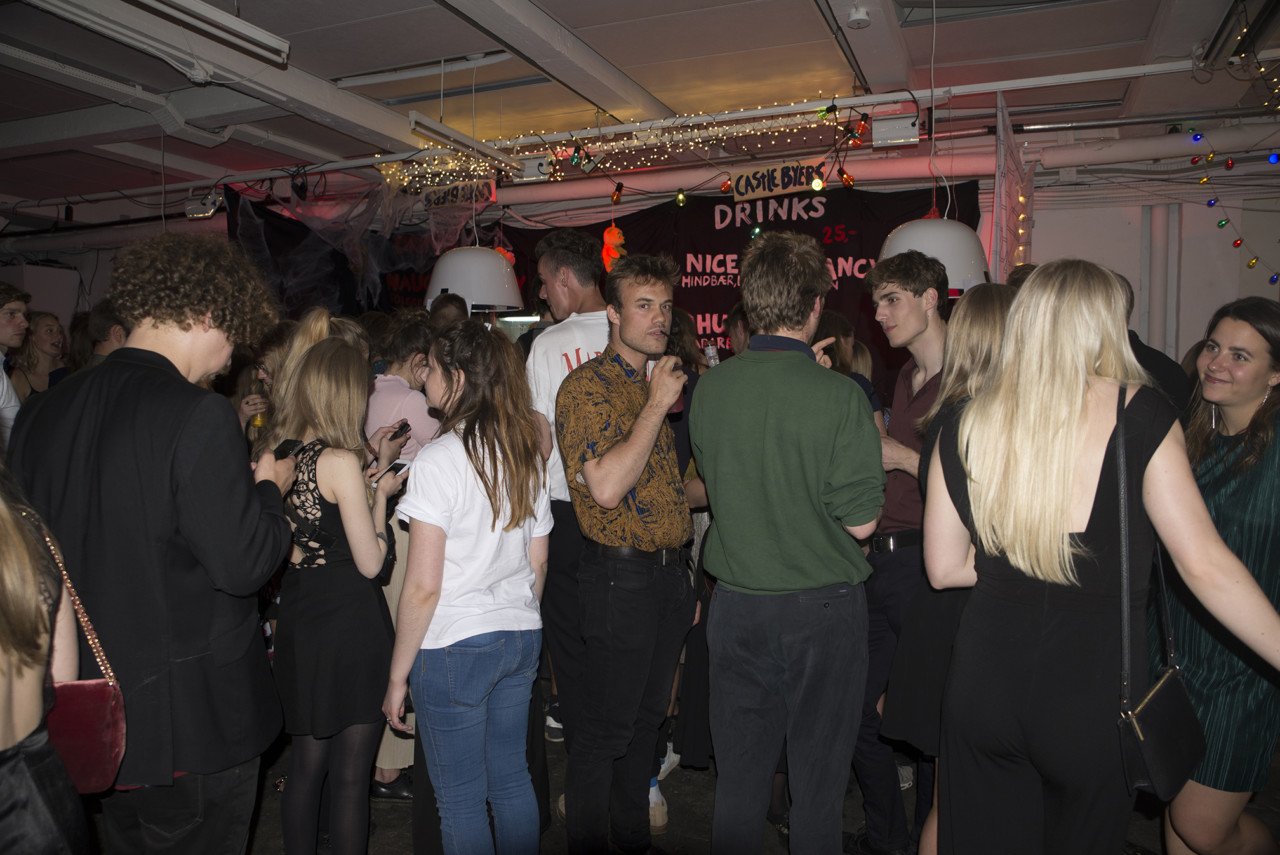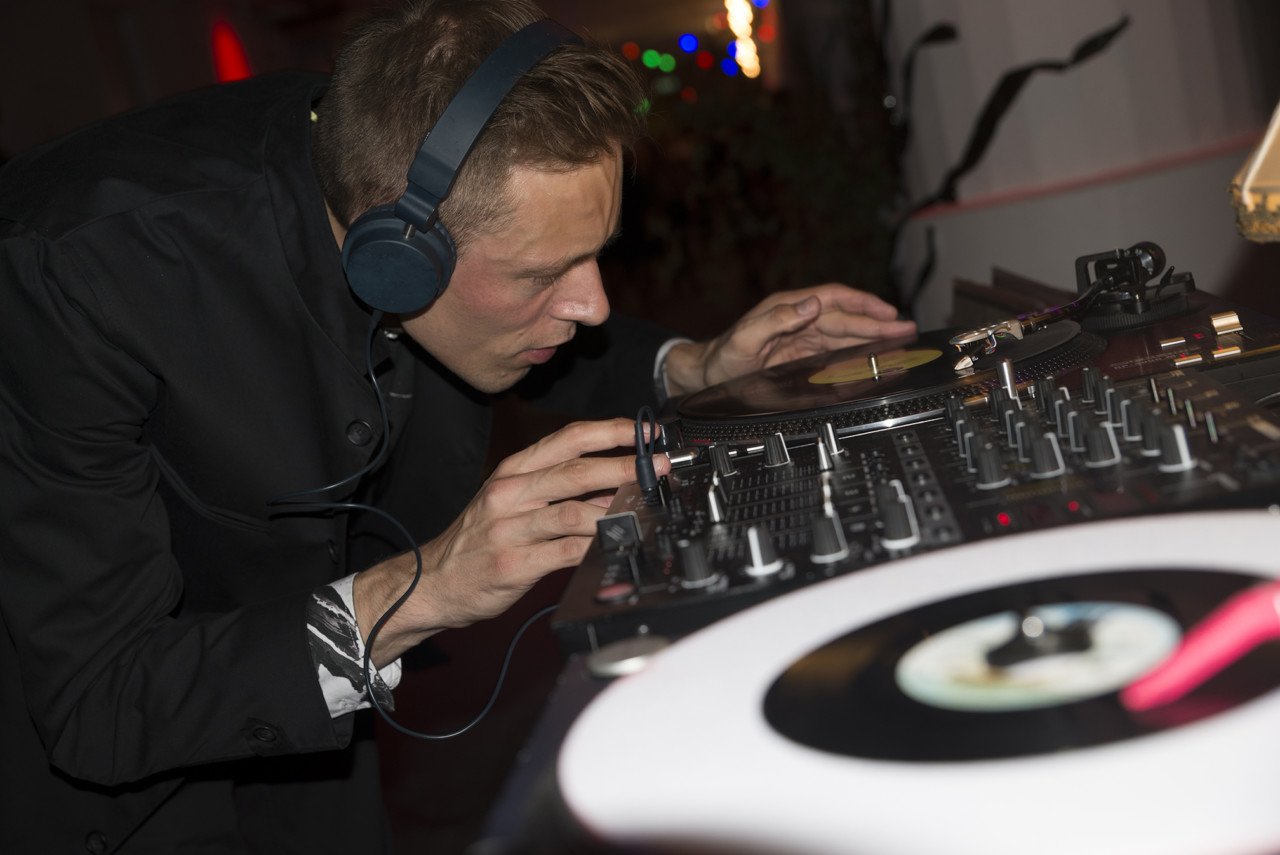Universitetsavisen
Nørregade 10
1165 København K
Tlf: 35 32 28 98 (mon-thurs)
E-mail: uni-avis@adm.ku.dk
—
Campus
Film festival — The 2017 Hugo Awards, organised by Film and Media Studies, celebrates the productions of its students. 28 films participated, and seven awards were handed to the winners chosen by a jury of industry professionals.
If you study at Southern Campus, you might have seen the stickers on the bathroom doors, or the posters hanging on the walls: a mysterious, gloomy image featuring a red logo that reads
HUGO Nominations
Projects are sent in and screened for anyone interested in watching them. Later, the
Finally, the second jury—which consists of acclaimed industry professionals—picks the winners from the nominated bunch.
Since the inception of the Hugo Awards many well known names in the Danish film industry have been associated with the project: including, to name the most famous ones, Lars von Trier, Peter Aalbæk and actress Ghita Nørby (who all served as jury members at one point or another).
»It’s the event of the year for us. On Film and Media Studies, many students use much of their spare time to create films, and this is a great opportunity for them to showcase what they can do and be acknowledged for it« noted Lasse Gravesen, one of the 40 organisers behind the event.
Beyond the core of the program—the films, and the prizes given to the people who created them—this year’s Hugo Awards had dancers, a rap battle, famous faces, and a comedic plot that connected it all. This plot was inspired by the Netflix series Stranger Things. Like the series, it included elements such as a missing boy (here, named Hugo), friends (the hosts of the show) determined to find him, a girl with superpowers (whose nose bleeds whenever she uses them), and a dark parallel universe.
They also had pastries, free wine, a bar, a DJ, and a dance-floor. During the show, an up-and-coming band performed a song inspired by the sounds of the 80s: The decade in which the night’s theme, Stranger Things, is set – the band is called
As for the audience, they were quite lively: at a certain point, a name mentioned by one of the hosts prompted chanting and feet-stumping that shook the grounds of Dansehallerne—it was probably the name of a prominent professor at Film and Media Studies. At another point, celebrity confectioner Mette Blomsterberg, about to present an award, received a compliment in the form of a loud »Mette you’re hot!«
But let us now turn to the backbone of it all: The filmmakers
»I was at a dinner with my family and it was my 21st birthday. And, my brother had just received a promotion at his job: my parents were, of course, very interested in this. So, my brother spoke most of the time— on a day when you sort of expect to be the centre of attention. It was this situation, and the jealousy that it gave rise to, that inspired me to write Brormand (Brother)« Morten Viberg-Holde told me during our conversation around one of those tall and round standing-tables.
HUGO has a special place in our hearts
Rasmus Tranberg, student at Film and Media
He is actually not a student at UCPH: Brormand is his graduation film for the Copenhagen Film and Photo School. However, his producer, Søren Gustafson, is a first year student at Film and Media Studies and thus qualified their project for the Hugo Awards.
»We had a very tight deadline so there were only 2 weeks between the time Morten finished the first draft and the time we began shooting. In that window, I raised DKK 12,000 for the project which came in addition to the DKK 4,000 Morten received from the Film and Photo School« Søren said about the costs of the production.
Morten and Søren were roommates in the European Film College (stationed in Jylland), and it was also there they met Andreas Ascanius Lundmark Jakobsen, the cinematographer of Brormand: his work landed them the nomination for best aesthetics at the Hugo Awards.
The winners are
Best Idea: Bob
Best Performance: Poul Storm in Sukkerfar (Sugar-daddy)
Best Screenplay: Koldt på toppen (Cold on the top)
Best Aesthetics: Fukai Mori (Deep Forest)
Best Short Film (Fiction): Hestetraileren (The Horse-trailer)
Best Short Film (Non-fiction): Solvognens Rejse (The Journey of the Trundholm Sun Chariot)
Audience Award: Stille bjerg (Silent Mountain)
The cinematographer of Brormand was not the only Hugo-nominee from outside UCPH: Tanne Sommer, director and writer of Hestetraileren (The Horse-trailer), came here last semester to take classes at Film and Media Studies through the open university program. She met Simon Vinholdt who later became the film’s producer assistant.
Their 30 minute short tells the story of a girl and two guys who decide to make money off their hash-fields, and head for Germany with a horse-trailer full of marihuana. It’s a comedy made on a budget of
»Luckily, there was a guy, a scout, who was willing to lend us his cabin for free. We were 30 people crammed into a relatively small place, we slept there, and so we basically lived like the characters in our film, who live in a collective. But, despite all the hardships of the production, Hestetraileren is the greatest thing I’ve ever done. It was pure hippy,«
Tanne’s road-trip comedy won the award for best short film (fiction) which included a
The Hugo Awards also included a category for actors: one of the nominees for best performance was Alex Høgh Andersen. You might not know who he is, but you have probably heard about the historical drama series called
»Alex’ character is a parody of the attention-seeking, self-centred person that many people stereotype young actors to be« answered Christoffer Dibbern, one of the creators of the project, when asked how close the fictional Alex is to the real one.
»But no, the character was never a parody of the real Alex.«
Christoffer wasn’t the only man at the helm of this production: he and Mikkel Hjort-Pedersen produced, wrote, directed and edited Koldt på toppen (Cold on the top) together—it’s their joint bachelor project for Film and Media Studies.
»It was a very hectic production. We all had regular jobs or schedules to keep so we only had 4 days of actual shooting. Another challenge was our use of improvised dialogue. None of the scenes were scripted beyond a general outline, and in every take we either added or changed dialogue. We often had to redo takes multiple times to get dialogue that worked« Christoffer noted.
Unlike the previous teams, these guys only had a budget of about DKK 4,000, and, according to Christoffer, »all cast and crew worked for free so the only real expenses we had were the plane tickets to Dublin« where Koldt på toppen was filmed.
Fiction wasn’t the only genre represented at the Hugo Awards: there were 8 non-fiction short films among the total number of 28 productions. Two of these were created under the guidance of Rasmus Tranberg from Film and Media Studies: short documentaries, each being a portrait of a different person from the world of gaming.
One of them depicts Luna, a woman who streams her gameplay, and the other one introduces Torbjørn, a professional gamer and head of a gaming-team sponsored by several companies.
»Gaming is a growing subculture in Denmark: large companies are investing in people for playing certain video games well. I wanted to investigate this, and to give a bigger voice to a society that, I feel, is not being heard. And to show that this world doesn’t only consist of troubled teenage boys with acne and poor social skills« Rasmus explained after the award show.
It was a very hectic production. We all had regular jobs or schedules to keep so we only had 4 days of actual shooting
Christoffer Dibbern
He was the
»I had an internship at a place called the Brain Gain Group, and they were commissioned by TV2 East to make three short documentaries about gaming in Denmark. And the guys at the Brain Gain Group put me in charge of it because they knew that, coming from Film and Media Studies, I had a lot of theoretical background in ‘TV-organisation.’ I was provided with an almost completely free space for unfolding my creativity.«
TV2 East gave Rasmus a budget of DKK 25,000 for each film. One of these was nominated in the category Best Non-Fiction Short Film.
One of the presenters was Sara Hjort Ditlevsen: an actress who recently starred in the Channel 5 series Gidseltagningen (Hostage-taking) about a terror attack on the Copenhagen subway.
»Last year I couldn’t do it, so this time I said yes. They offered me a stay at a French castle—that’s the real reason why I agreed to it« she joked on our way to the hall where the show was soon to begin.
»I will wear a beautiful silk morning gown and eat croissants for breakfast« she said tongue-in-cheek and then presented the award for best idea alongside actor Morten Vang Simonsen.
Not everyone agreed with the decisions made by the two juries: »I think Brormand should have been nominated for best screenplay« Lasse Gravesen said. But as Rasmus Tranberg put it, »that’s what’s so great about films: the worst ones seen with someone’s eyes are the best ones seen with another’s.«
Bettina, another Film and Media student, shared some feedback concerning other aspects of the Hugo Awards as well: »I have to give the organisers extra credit for getting the
Check this site for more information, films, and a history of the longstanding tradition that is Film and Media Studies’ annual Hugo Awards.
